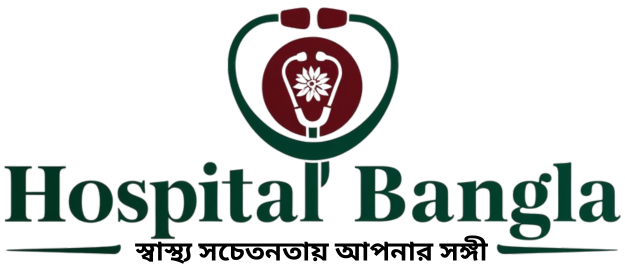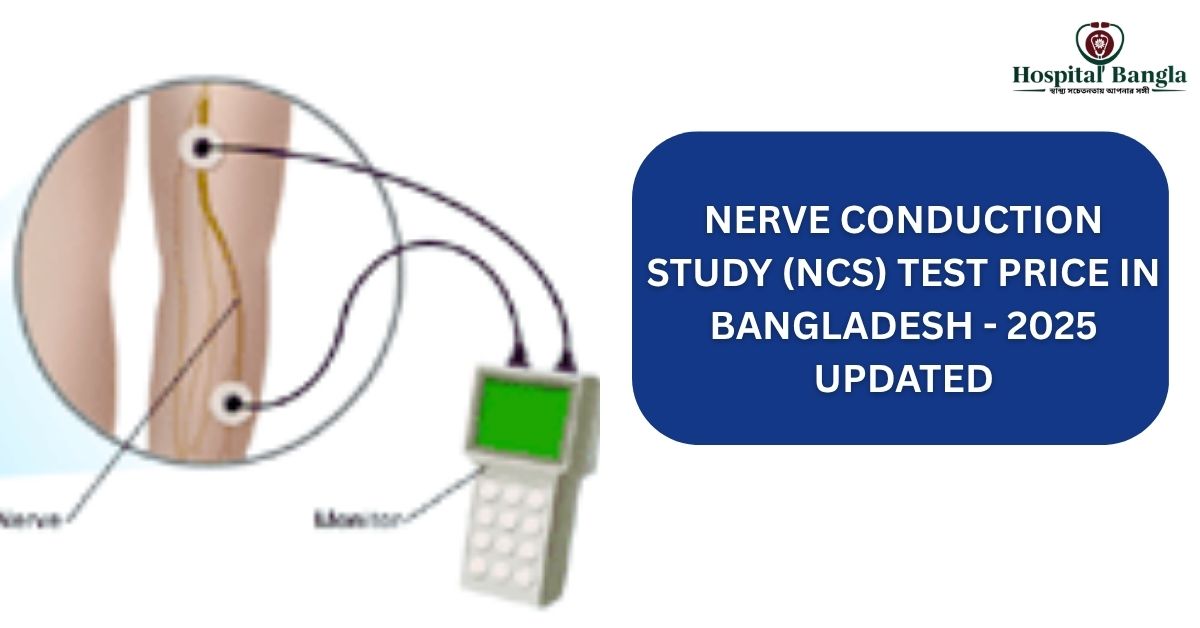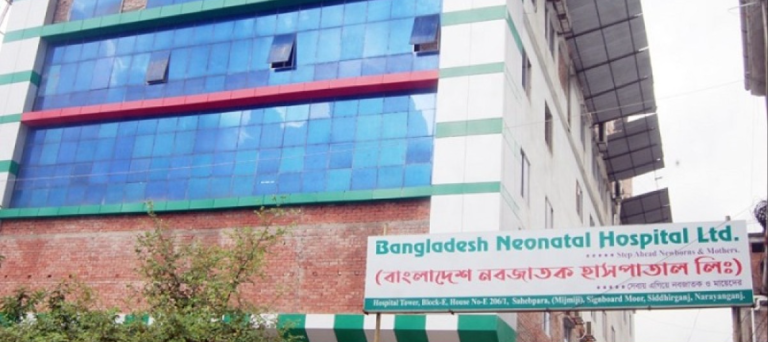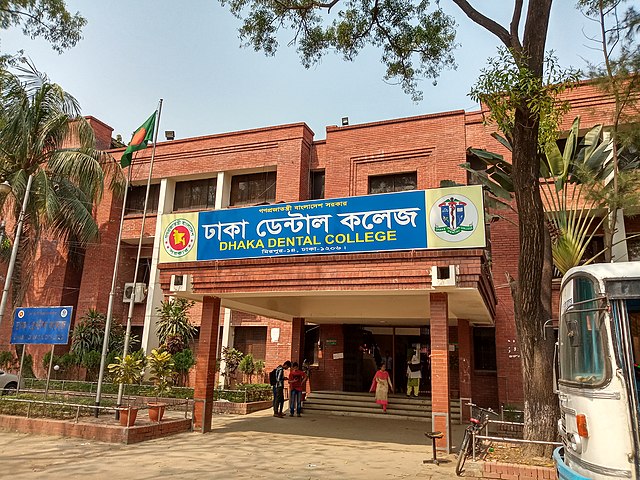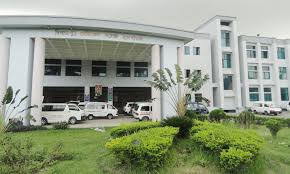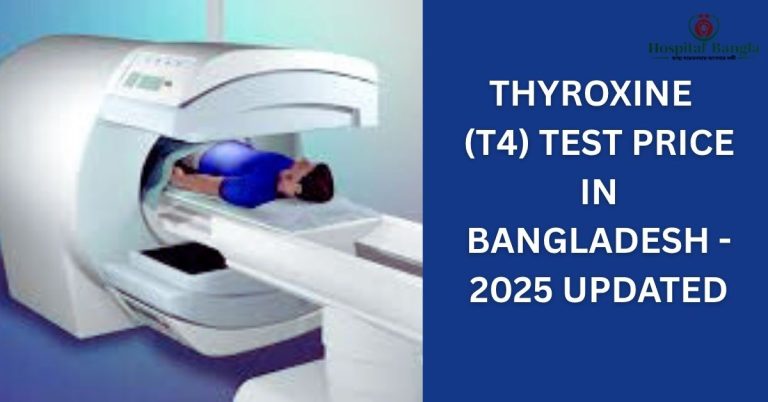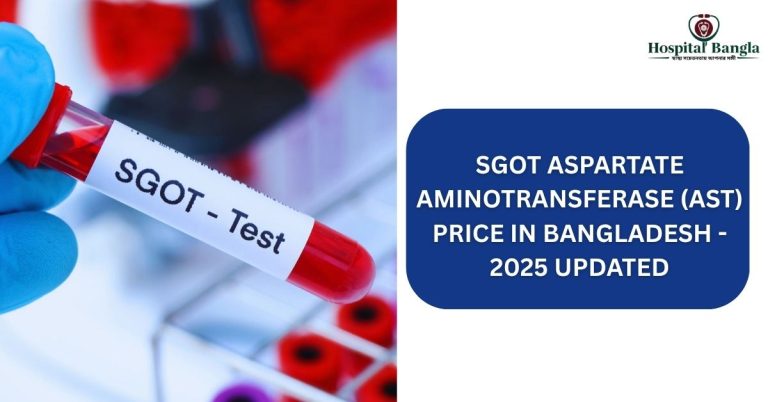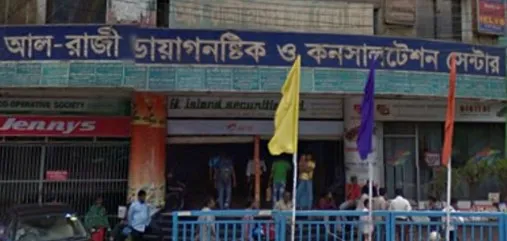NCS Test Price in Bangladesh: (2025 Updated)
A Nerve Conduction Study (NCS), also known as a Nerve Conduction Velocity (NCV) test, is a vital diagnostic tool used to assess the health of peripheral nerves, which transmit signals between the brain, spinal cord, and the rest of the body. This non-invasive test measures the speed and strength of electrical signals in nerves, helping diagnose conditions like peripheral neuropathy, carpal tunnel syndrome, and radiculopathy. If you’re experiencing symptoms such as numbness, tingling, or muscle weakness, an NCS test may be recommended by your doctor. Understanding the NCS test price in Bangladesh is essential for making informed healthcare decisions. In 2025, prices in private hospitals typically range from 1,000 to 14,000 BDT, with government hospitals likely offering lower costs. This article provides a detailed overview of NCS tests, including their purpose, preparation, pricing, and result interpretation, based on data from major hospitals and diagnostic centers in Bangladesh.
What is an NCS Test?
A Nerve Conduction Study (NCS) is a medical diagnostic test that evaluates the function of peripheral nerves by measuring the speed and strength of electrical signals. During the procedure, small electrodes are placed on the skin over the nerve being tested. A mild electrical current stimulates the nerve, and the response is recorded to assess nerve health. The test is often performed alongside electromyography (EMG) to evaluate muscle function, providing a comprehensive view of neuromuscular health.
Clinical Significance
NCS tests are critical for diagnosing conditions that affect nerve function, including:
- Peripheral Neuropathy: Nerve damage causing numbness or pain in hands and feet.
- Carpal Tunnel Syndrome: Compression of the median nerve in the wrist.
- Radiculopathy: Nerve root compression in the spine.
- Guillain-Barré Syndrome: An autoimmune disorder affecting peripheral nerves.
- Chronic Inflammatory Demyelinating Polyneuropathy (CIDP): A chronic nerve disorder.
Alternative Names
The test is commonly referred to as a Nerve Conduction Velocity (NCV) test or simply a nerve conduction test. In medical settings, it may also be listed under electrodiagnostic testing.
When is an NCS Test Recommended?
An NCS test is typically recommended when a patient exhibits symptoms of nerve dysfunction, such as:
- Numbness or tingling in the hands, feet, or limbs.
- Muscle weakness or atrophy.
- Persistent pain following a nerve’s path.
- Loss of reflexes.
- Burning or electric shock-like sensations.
Diagnostic Use
Doctors use NCS results to:
- Identify the cause and location of nerve damage.
- Differentiate between demyelinating (myelin sheath damage) and axonal (nerve fiber damage) disorders.
- Monitor the progression of known nerve conditions.
- Assess the effectiveness of treatments for nerve-related disorders.
The test is primarily used for diagnosis but can also be employed for monitoring chronic conditions or evaluating recovery from nerve injuries.
NCS Test Preparation
Preparing for an NCS test is straightforward, with minimal requirements:
- Fasting: No fasting is required for an NCS test.
- Medications: Inform your doctor about all medications, especially blood thinners, as they may need adjustment. Most medications can be continued as usual.
- Skin Preparation: Avoid applying lotions, oils, or creams to the skin on the day of the test, as they can interfere with electrode adhesion.
- Clothing: Wear loose, comfortable clothing that allows easy access to the arms, legs, or other areas being tested. You may be asked to change into a hospital gown.
- Other Considerations: Notify your doctor if you have a pacemaker or implanted defibrillator, though these are generally not contraindications.
Procedure
The test involves placing electrodes on the skin and delivering small electrical pulses to stimulate the nerve. The procedure typically takes 15 to 30 minutes, depending on the number of nerves tested. Patients may feel mild discomfort or a tingling sensation, but the test is generally well-tolerated.
NCS Test Price List in Government Hospitals in Bangladesh
Specific pricing for NCS tests in government hospitals is not fully detailed in the provided data, as the focus is primarily on histopathology and other tests. However, government hospitals like Bangabandhu Sheikh Mujib Medical University (BSMMU) are known for offering diagnostic tests at lower costs compared to private facilities. Based on general trends, NCS test prices in government hospitals are likely to be significantly lower than private hospital rates, potentially ranging from 500 to 5,000 BDT, depending on the test’s complexity and the hospital’s facilities. For precise pricing, contacting the hospital directly is recommended.
| Hospital Name | Location | NCS Test Price (BDT) | Contact Number |
|---|---|---|---|
| Bangabandhu Sheikh Mujib Medical University (BSMMU) | Shahbag, Dhaka | 500–5,000 (estimated) | +880-2-55165760 |
| Dhaka Medical College Hospital | Dhaka | 500–5,000 (estimated) | +880-2-55165088 |
| Chittagong Medical College Hospital | Chittagong | 500–5,000 (estimated) | +880-31-619250 |
| Rajshahi Medical College Hospital | Rajshahi | 500–5,000 (estimated) | +880-721-775651 |
| Sylhet MAG Osmani Medical College Hospital | Sylhet | 500–5,000 (estimated) | +880-821-713487 |
| National Institute of Neurosciences & Hospital (NINS) | Dhaka | 500–5,000 (estimated) | +880-2-9110425 |
| Sir Salimullah Medical College Mitford Hospital | Dhaka | 500–5,000 (estimated) | +880-2-7319123 |
Note: Prices are estimated based on general trends for diagnostic tests in government hospitals. For accurate pricing, contact the hospital or visit their official website, such as BSMMU.
NCS Test Price List in Private Hospitals in Bangladesh
The following table lists NCS test prices from private hospitals and diagnostic centers in Bangladesh, based on data from Ibn Sina Hospital and Popular Diagnostic Centre. Prices reflect both original and discounted rates where applicable, as of 2025.
| Hospital/Diagnostic Center | Location | NCS Test Price (BDT) | Contact Number |
|---|---|---|---|
| Ibn Sina Hospital | Dhanmondi, Dhaka | NCV Both Lower Limbs: 6,000 (discounted 4,500) | +880-2-9126625 |
| Ibn Sina Hospital | Dhanmondi, Dhaka | NCV Both Upper Limbs: 6,000 (discounted 4,500) | +880-2-9126625 |
| Ibn Sina Hospital | Dhanmondi, Dhaka | NCV Four Limbs: 12,000 (discounted 9,000) | +880-2-9126625 |
| Ibn Sina Hospital | Dhanmondi, Dhaka | NCV Single Limb (Left/Right, Upper/Lower): 3,000 (discounted 2,250) | +880-2-9126625 |
| Popular Diagnostic Centre | Dhanmondi, Dhaka | NCV Both Limbs (Upper & Lower): 14,000 | +880-2-9669480 |
| Popular Diagnostic Centre | Dhanmondi, Dhaka | NCV Lower Limb (Left & Right): 7,000 | +880-2-9669480 |
| Popular Diagnostic Centre | Dhanmondi, Dhaka | NCV Upper Limb (Left & Right): 7,000 | +880-2-9669480 |
| Popular Diagnostic Centre | Dhanmondi, Dhaka | NCV Single Part: 7,000 | +880-2-9669480 |
| Popular Diagnostic Centre | Dhanmondi, Dhaka | NCS Right Upper Limb and H. Reflex: 5,000 | +880-2-9669480 |
| Popular Diagnostic Centre | Dhanmondi, Dhaka | NCV Multiple Sites: 1,000 | +880-2-9669480 |
| Labaid Diagnostic Centre | Dhanmondi, Dhaka | 3,000–14,000 (estimated) | +880-2-58610793 |
| United Hospital | Gulshan, Dhaka | 3,000–14,000 (estimated) | +880-2-8836000 |
| Square Hospital | Panthapath, Dhaka | 3,000–14,000 (estimated) | +880-2-8144400 |
Note: Prices are sourced from provided data and may vary. Contact hospitals directly for the latest rates or visit Popular Diagnostic or Ibn Sina Trust for more details.
Understanding NCS Test Results
NCS test results are interpreted by a neurologist or physiatrist, focusing on two key metrics:
- Latency: The time it takes for a nerve signal to travel from the stimulation point to the recording electrode. Prolonged latency suggests slowed nerve conduction, often due to demyelination.
- Amplitude: The strength of the nerve signal. Reduced amplitude indicates fewer functioning nerve fibers, common in axonal damage.
Normal Range
Normal latency and amplitude values vary by nerve, age, and body size. For example, median nerve conduction velocity in the forearm is typically 50–60 meters per second in healthy adults.
Abnormal Results
Abnormal results may indicate:
- Demyelination: Slowed conduction due to myelin sheath damage (e.g., in CIDP).
- Axonal Loss: Reduced signal strength due to nerve fiber damage (e.g., in peripheral neuropathy).
- Conduction Block: Interrupted nerve signals, often seen in nerve compression.
Factors Affecting Results
- Temperature: Nerves conduct faster when warm, so skin temperature is controlled during testing.
- Age: Nerve conduction slows slightly with age.
- Body Size: Larger individuals may have different normal values.
- Medications: Certain drugs, like blood thinners, may affect results if not disclosed.
When to Consult a Doctor
If results are abnormal, consult a neurologist for further evaluation. Additional tests, such as EMG or imaging (e.g., MRI), may be recommended to confirm the diagnosis. Always discuss results with your healthcare provider to understand their implications.
Frequently Asked Questions
How accurate is an NCS test?
NCS tests are highly accurate for detecting nerve dysfunction when performed by trained specialists. However, results may be normal in early-stage nerve damage, requiring further testing.
How long does it take to get NCS test results?
Results are often available immediately, as the neurologist can interpret them during the test. A detailed report may be provided within 1–3 days.
Does insurance cover NCS tests in Bangladesh?
Coverage depends on your insurance policy. Some private insurers may cover diagnostic tests, but it’s best to confirm with your provider.
How often should I get an NCS test?
The frequency depends on your condition. For chronic nerve disorders, periodic tests may be recommended to monitor progression or treatment efficacy.
What’s the difference between NCS and EMG?
NCS measures nerve conduction speed and strength, while EMG assesses muscle electrical activity. Both are often used together for a complete neuromuscular evaluation.
Is the NCS test painful?
The test involves mild electrical stimulation, which may cause brief tingling or discomfort but is generally not painful.
Can I resume normal activities after the test?
Yes, there are no restrictions on driving or other activities post-test, as it is non-invasive.
Conclusion
Nerve Conduction Studies (NCS) are essential for diagnosing and managing peripheral nerve disorders, offering critical insights into nerve function. In Bangladesh, the NCS test price in Bangladesh varies significantly between private and government hospitals, with private facilities like Ibn Sina and Popular Diagnostic Centre charging 1,000–14,000 BDT, while government hospitals likely offer lower rates. Comparing prices across facilities can help you find cost-effective options without compromising quality. For accurate pricing and to determine if an NCS test is right for you, consult your healthcare provider or contact hospitals directly.
